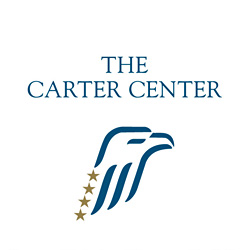Violent Extremism: Setting Priorities for Research
The near-daily litany of violence perpetrated by violent extremist groups like al-Qaeda, ISIS and Boko Haram illustrates the dearth of understanding about how these militant organizations successfully tap into social discord to advance their campaigns. On Thursday, September 29, the U.S. Institute of Peace and the RESOLVE Network convened researchers from around the world to help set priorities for policy-relevant research to identify effective responses.
Violent extremism presents a number of puzzles: What motivates individuals or groups attracted to political rhetoric advocating violence to take the next step of carrying out violent action? How is this type of violence different from other forms of political violence? When and under what conditions do communities choose to support, abstain from or actively reject violent social movements and extremist groups?
Amb. William Taylor, Welcome Remarks
Vice President, U.S. Institute of Peace
Keynote and Discussion: Of Barrel Bombs and Beheadings: The Roots of Intergenerational Extremism
Mohammed Hafez, Keynote
Chairman and Associate Professor, Naval Post Graduate School
Georgia Holmer, Moderator
Director of CVE, U.S Institute of Peace
Session 1: The Governance Nexus: Legitimacy, State Fragility and Violent Extremism
Humayun Kabir, Panelist
Vice President, Bangladesh Enterprise Institute
Richard Atwood, Panelist
Director of Multilateral Affairs and Head of New York Office, International Crisis Group
Cheryl Frank, Panelist
Head of Transnational Threats and International Crime Division, Institute for Security Studies
Beza Tesfaye, Panelist
Conflict and Governance Research Manager, Mercy Corps
Cameron Chisholm, Moderator
President and Founder, International Peace &Security Institute
Session 2: A New Narrative: Rethinking the Discourse on Violence & Religious Identity
Eliza Urwin, Panelist
Senior Program Officer, U.S Institute of Peace
Tahir Abbas, Panelist
Senior Research Fellow, Royal United Services Institute
Imtiaz Gul, Panelist
Executive Director, Centre for Research and Security Studies
Houda Abadi, Panelist
Associate Director MENA Projects, The Carter Center
Candace Rondeaux, Moderator
Senior Program Officer and Director of RESOLVE Network Secretariat, U.S. Institute of Peace

 Religion often is used to justify violence and the unequal status of women. More than ever, these problems are interrelated, and efforts that address them in isolation fail to produce comprehensive, long-term strategies.
Religion often is used to justify violence and the unequal status of women. More than ever, these problems are interrelated, and efforts that address them in isolation fail to produce comprehensive, long-term strategies.





